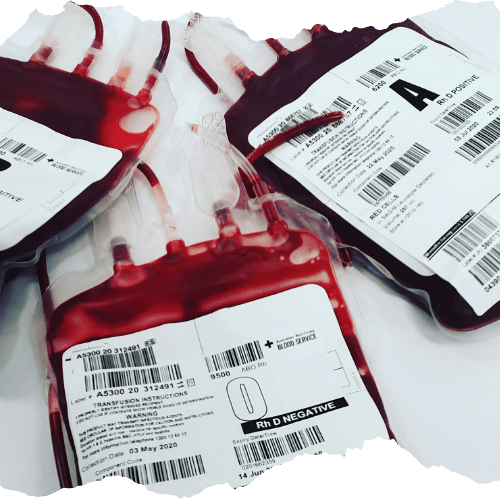How Mohammed Kamruzzaman’s blood transfusion supports the preference for autologous blood for blood transfusion
Autologous blood (patients’ own blood) is an invaluable source of transfusion blood. Especially when donor blood is not compatible or scarce.
Mohammed Kamruzzaman, a young Bangladeshi worker, was urgently in need of a blood transfusion after an accident left hem fighting for his life. Upon arrival in the hospital, a group of dedicated doctors immediately attempted for donor transfusion blood. Without success, unfortunately. As they would soon find out that Mohammed carried the rare ‘Bombay’ blood group which made transfusion with the regular ABO donor blood types impossible. With time of the essence, the doctors now faced the great challenge of finding Bombay compatible donor blood.
Autologous blood is invaluable, particularly to patients with rare blood types
The American Red Cross defines a blood type as ‘rare’ when it occurs in fewer than one in a thousand individuals. The ‘Bombay’ blood group belongs to the rarest of the rare. It is found in only four persons in every million. Finding compatible donor blood for patients with this blood type is tremendously challenging. But also for transfusion with more prevalent donor blood types, we should consider autologous blood. The Ro Kell negative blood subtype occurs amongst donors twice as often as the common AB negative blood type. Nevertheless, it is one of the most sought after donor blood groups due to annually increasing high demands.
Stop to think that Mohammed’s own shed blood, was a readily available source of transfusion (re-infusion) blood with maximal compatibility. Whenever a patient carries a rare blood type, donor blood compatibility is a strong reason why we should consider autologous blood transfusion.
Dedicated doctors need go to extraordinary lengths for compatible life-saving donor blood
Kamruzzman’s doctors went to the greatest length to find a donor with the Bombay blood group. And their exceptional efforts paid off. With the help of Think Foundation, which runs a list of potential Bombay donors, four Indian donors with the right blood type were found. Their donations were cleared for transport and flown into Bangladesh. Luckily, the doctors saved Mohammed Kamruzzaman.
People with rare blood types are very important donors. Blood banks are the cornerstone of our blood supply systems. Moreover, non-governmental organisations like Think Foundation too are indispensable to the availability of compatible donor blood. However, the use of patients’ own blood for transfusion, whenever possible, can partially relieve the pressure on blood banks. Autologous blood not only is maximally compatible, it also yields improved clinical outcomes.
Follow HemoClear on social media to learn more on six other reasons why we have to consider patients’ own lost blood for blood transfusion.

